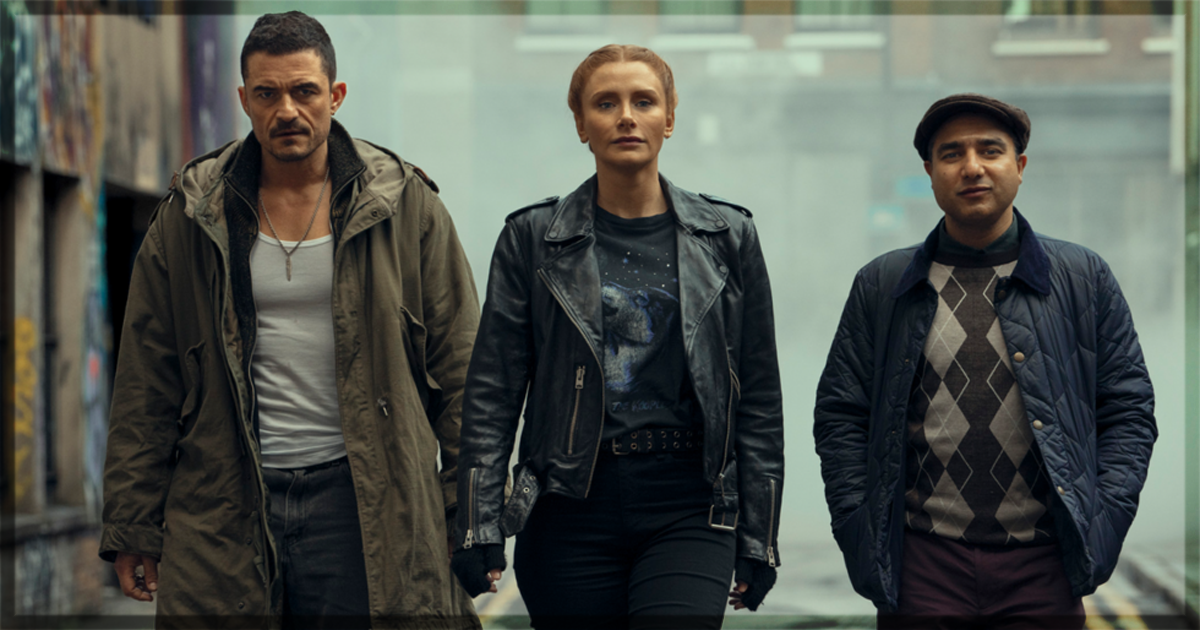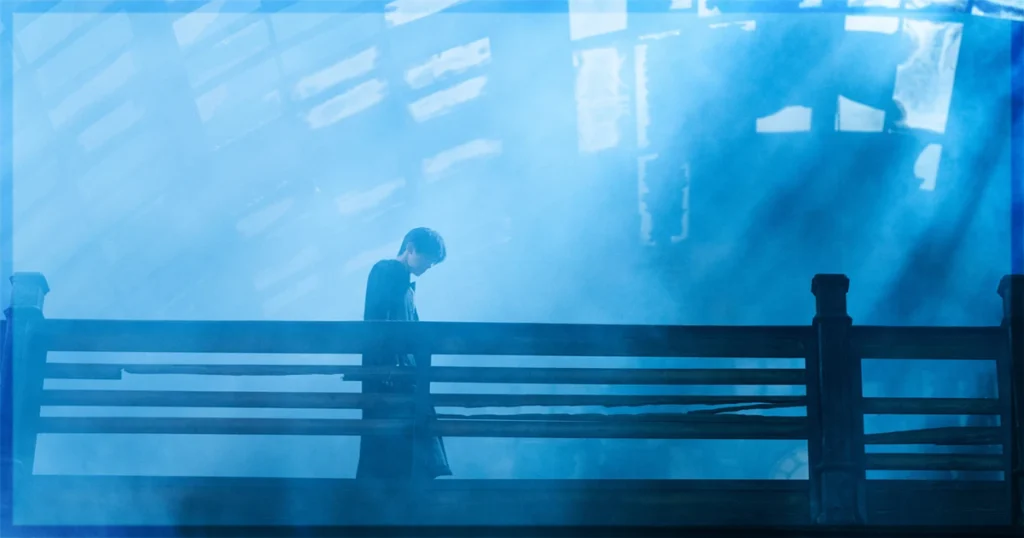Without knowing absolutely anything about Deep Cover, I began watching it at home with zero expectations – sometimes, that’s truly the best way to discover little cinematic surprises throughout the year. The lack of anticipation allows one to fully enjoy the unpredictability of the humor and the narrative lightness of this action comedy, which even within its familiar framework, manages to stand out thanks to the full commitment of the cast and the creative approach of the filmmaking team.
Directed by Tom Kingsley (Stath Lets Flats), Deep Cover features a screenplay penned by four writers: Derek Connolly & Colin Trevorrow (Jurassic World) and Ben Ashenden & Alexander Owen (The Pin). This combination alone could easily raise concerns regarding narrative cohesion, but fortunately, the final result shows a surprising harmony of styles – which is even more remarkable given the chaotic and improvised tone of the story itself. The cast includes familiar faces such as Bryce Dallas Howard (Argylle), Orlando Bloom (The Lord of the Rings), Nick Mohammed (Ted Lasso), and Sean Bean (Game of Thrones).
The premise centers around a group of improv actors who, due to increasingly absurd and dangerous circumstances, end up involved in a very real undercover mission to infiltrate a violent gang. While pretending to be criminals, they begin to blur the line between performance and reality. Kingsley takes a distinctly meta approach, turning Deep Cover into a self-aware comedic reflection on the very act of acting, all while delivering a movie filled with hilarious situations and deliberately stereotypical characters.
One of the biggest highlights is undoubtedly Bloom in the dual role of Marlon and his alter ego Roach – a caricature of the typical “muscle” role found in gang tropes, exaggeratedly masculine as if ripped straight out of a 90s sketch show. Bloom, often unfairly dismissed as a limited performer, proves here that he possesses impeccable comedic timing and an incredible ease with absurd material. Roach is a never-ending well of catchphrases, ridiculous threats, and choreographed gestures that the actor executes with a level of precision that’s as methodical as it is ridiculous. His ability to escalate conflicts with near-mechanical deliberation makes each of his scenes unpredictable, and for that very reason, irresistibly funny. Honestly, it’s one of the best performances of his career.
Mohammed plays the opposite side of that coin, portraying Hugh, a shy and socially awkward man who ends up being dubbed The Squire. His desperate desire to make friends within the company and his constant internal battle between sticking to the improvised script or simply fleeing the entire situation generate some of the film’s most endearing – and also most awkwardly hilarious – moments.
Meanwhile, Bryce Dallas Howard plays Kat – who, in turn, plays Bonnie – the leader of the undercover trio. An improv actress going through an existential and professional crisis, Kat sees the mission as a chance to redeem her career and perhaps even her self-worth. Bryce captures this duality with sensitivity and a self-deprecating sense of humor, reminding us that beneath the comedy are characters who want to feel useful, seen, and valued.
Special mention must go to the presence of Bean alongside Bloom, inevitably sparking memories of what is, personally, the greatest trilogy in cinema history. In Deep Cover, the two “veterans” share the screen in a completely new light, exploring comedic sides of themselves that they’re rarely allowed to tap into in other projects.
The screenplay, while predictable and full of typical clichés, comes to life through its self-awareness in satirizing those same clichés. Interestingly, Deep Cover benefits from having multiple creative voices behind the script – the nature of the mission itself requires a collaborative approach, mirroring the creative process of a group of actors constantly inventing, adapting, and improvising as the situation becomes increasingly perilous.
Kingsley deserves credit for fully understanding the type of movie he’s making. The light, borderline parodic tone never gets lost, even when the story ventures into darker territory involving organized crime, murder, and false identities. The filmmaker keeps things agile, maintains solid pacing, and almost always prioritizes absurdity through physical comedy and committed performances.
Of course, thematically, Deep Cover doesn’t concern itself too deeply with its reflections on the value of performance in real life. Still, there’s a gentle critique of the entertainment industry and the struggles many artists face in finding meaning in their careers – especially when their talent is pushed aside in favor of empty commercial projects. Kat, Marlon, Hugh – they’re all just seeking validation, belonging, and purpose. But naturally, the movie’s focus is on improvisational comedy… which, ironically, isn’t all that improvised.
The story’s predictability and conventional structure prevent Deep Cover from becoming something truly memorable, but what it lacks in originality, it makes up for with charm, energy, and a clear dedication from everyone involved.
Final Thoughts on Deep Cover
Deep Cover is an action comedy that knows exactly what it wants to be: lightly entertaining, deliberately exaggerated, and ironically efficient. It doesn’t reinvent the genre, but it offers an hour and a half of pure fun, with genuinely hilarious performances – especially from Orlando Bloom – and direction that skillfully balances chaos and control. For anyone unsure about what to watch over the weekend, this is a delightful surprise well worth discovering from the comfort of home.
Rating: B
Deep Cover is now playing in theaters.
Learn more about the film, including how to watch it, at the official website for the title.


